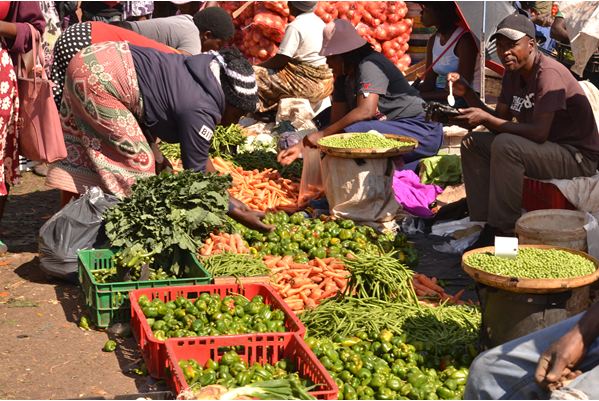Although formal advertisements might be spreading the impression that fast foods are taking over African food systems, social media channels are showing how future-oriented African food scientists and indigenous food formulators are quietly using agroecology ingredients to alter the global food landscape. In addition to extending some indigenous food ingredients to the diaspora, this movement is giving birth to several food-related business models anchored on African mass markets. These markets are viable meeting points for advancing shared economic development goals and celebrating a common culture. To buttress this silent incredible transformation, agroecology needs more start-ups in food formulation to match what is happening on the production side where a lot of raw agroecology commodities are being produced to compete with exotic commodities.

Gone are the days when breakfast was centred around wheat bread and consuming sweet potato in public was laughable. A typical African household breakfast is now a combination of avocado, sweet potato, Bambara nuts, indigenous rice, tsvubvu, umviyo, pumpkin and many other foods that happen to be in season. This is the kind of food diversity promoted by agroecology principles and translating food festivals into several household diets and menus. Eager to move away from western diets, many people are ready to hour their ancestors and heritage through indigenous food. “You can’t honour your ancestors using foreign food,” said one urban African consumer with a knowing smile.
Formulating food ingredients is not rocket science
Formulating food ingredients and coming up with unique diets is no longer a preserve of chefs, thanks to African agroecology which is inspiring food formulation capabilities and novel ingredients among many people including urban young mothers who are working hard to prevent their children from feasting on fast foods. While this trend might not turn mothers and food vendors into rocket scientists, it is fast democratizing key principles of food science in ways that give agroecologically produced food a competitive edge. With enough support from policy makers and development agencies, such efforts can trigger a new food revolution and fresh professions based on agroecology ingredients.
Giving African food scientists and indigenous food formulators some wings
Increasing awareness about the importance of health and wellness is nudging may African consumers to rethink their consumption habits. New home-made food formulations are changing diets and lifestyles. Urban consumers who grew up on western diets are beginning to fall in love with traditional food ingredients, thanks to mass food markets that are availing Africa’s food abundance by mobilizing food from every community and lengthening indigenous value chains.
Agroecology is also refining and packaging indigenous value chains that have continued to grow quietly as part of the invisible informal economy for decades without meaningful support from governments and development organizations. This is strengthening an indigenous food industry beyond food festivals to households, hotels and restaurants. Very soon, indigenous food will be the main cuisine at most national events such as Independence Day celebrations to show that nutritional independence give meaning to political independence. Independence celebrations should not be characterized by fast foods but cuisine from the community or district where the celebrations are held. In every African community, local grandmothers still possess a lot of knowledge on how to formulate local food ingredients. Such expertise is very important at a time climate volatility, and food-related diseases are challenging agriculture’s ability to meet the world’s nutrition needs.
Bringing more youths into food systems
Countries that connect agroecology with territorial mass food markets will bring more youths into the food system where formulating diverse ingredients can be a more appealing profession than farming which is still associated with hard labour. Bringing youths into the food ecosystem will also make food systems more sustainable and resilient provided governments support indigenous food manufacturing practices into a viable industry with clear standards that are fit for purpose. Food formulation and product development could create groundbreaking new products worth billions of dollars while also reducing food waste and loss. As agroecology novel foods begin to come down the cost curve, more food and beverage companies will be formed-translating raw commodities into diverse products in real time for millions of consumers. New tastes, food alternatives, and beverages silently finding their way onto African mass markets will soon become part of mainstream diets.
Tapping into consumer power and awareness
Understanding consumer interest will make a difference driving the development of new foods. Food formulators will also have to educate consumers about novel agroecology ingredients because consumers may not demand what they don’t know. At least, many consumers are becoming aware of agroecology as one of the leading emerging practices in the wake of climate change which is also raising the importance of understanding seasonal food dynamics and preservation technologies. Consumers are also becoming adept at comparing food produced using indigenous knowledge and that grown using imported knowledge systems. They are also now able to determine how the different knowledge systems address real needs of other value chain actors like farmers and traders.
Charles@knowledgetransafrica.com / charles@emkambo.co.zw /
Website: www.emkambo.co.zw / www.knowledgetransafrica.com
Mobile: 0772 137 717/ 0774 430 309/0712737430
